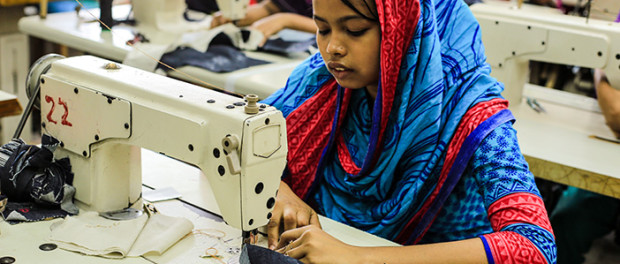No Child Left Behind: “No” To Child Exploitation!
Geneviève Borne, celebrity World Vision ambassador, got drawn to the issue of child exploitation as she was traveling in India with the organization. She credits a particularly vivid, genre style snapshot of Guwahati, a large city in the state of Assam, for her dedication. “In Guwahati, there was a community railroad track with kids on it who were picking up bottles”, she says. “They intended to recycle them. They make one cent per bottle.” The sight of all these children working in such dire circumstances to support their families touched her. It just felt wrong and in complete opposition with everything she stood for. “For me, childhood is supposed to be about innocence and lightness”, she says, a conception that could not be further from the reality of working up to 12 hours a day without any meals, a reality faced by many youngsters.
No Child For Sale, in its third year now, aims to make working conditions safer for children. “The idea is not necessarily to stop children from working, as some need it to support their families”, says Mme Borne “but rather to make sure they are not exploited [while they are doing it].” To this end, the World Vision campaign focuses its efforts on making Canadian companies safer for children in vulnerable areas by taking measures to keep them from exploiting these youngsters.
Unfortunately, rampant exploitation is a major problem in Indonesia, where Mme Borne recently traveled with the Quebec branch of the organization. Over there, child labor has a bitter taste of human trafficking. “People go door to door to convince the kids to work for them. […]”, she says. Oblivious parents, unaware of the full extent of the situation, are easily tricked or forced into selling their children. “Often they never see them again,” says Mme Borne. Most end up as slaves, servants, industry workers or prostitutes. To prevent this, World Vision is trying to make trafficking more difficult with several initiatives. For instance, they ensure that each child has a birth certificate. This document decreases a child’s chance of being exploited by making them accounted for in a country where undocumented children can very conveniently simply “disappear” at the hands of traffickers. It also offers educational programs in villages to inform people about the true nature of the practice and its dangers.
Find out more and sign the petition denouncing child labor worldwide HERE:
Geneviève Borne’s photo exhibition, organized by World Vision, will be held on June 12th in honour of World Day Against Child Labour at Espace Infopresse (4310 St-Laurent Blvd) from 10 a.m. to 9 p.m. The public will be able to purchase photos on site. All proceeds will be donated to No Child Left Behind.






